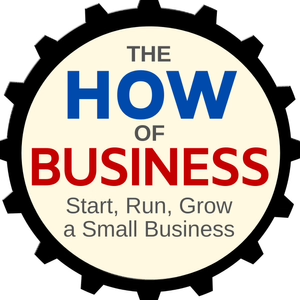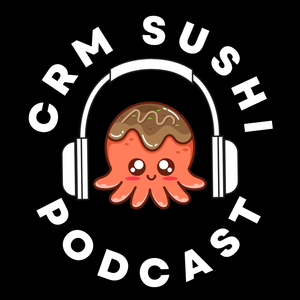
Season 3 - Episode 1: "The Career Toolkit" with Mark Herschberg
01/10/22 • 34 min
BOSS-it host, Mark Edwards has a wide-ranging chat with CTO and author, Mark Herschberg, who, it turns out, has been a guest on 180 podcasts. No pressure there then for our host to ask some decent questions :-)
Brief Bio for Mark Herschberg
Back in the 90s, during the .com era, Mark was a software developer. At the same time, he recognised the skills required to be successful were leadership, communication and networking. These were skills that were not taught in college, so he ended up teaching them at MIT - for the past 20 years.
Mark has followed these two careers in parallel and is still a CTO.
Best Lessons Learned
Mark says the best lessons he has learned came from a book called "Peopleware", by Tom de Marco & Timothy Lister – The essence of the book is that most software projects fail not because of technological (software) issues but for sociological reasons – In other words, because your team didn’t talk to each other and plan and communicate well, they messed up the project.
He outlines the most important things to do to avoid this scenario:
1) Set the overarching goal – What are we trying to achieve? – Not just what it is but how it's positioned.
2) Have a clear process - How are we going to work together? Have a clear idea for what happens when there’s an issue? – How do you raise that to your teammate? Where do we use Slack, versus an email or a meeting? Don’t leave this to chance.
3) Agree the definition of “Done”? – You need a common definition so that everybody knows when a job is actually complete.
Links:
The Career Toolkit – Mark A Herschberg
https://www.thecareertoolkitbook.com/
Download the career development kit:
https://www.thecareertoolkitbook.com/author
Peopleware by Tom de Marco & Timothy Lister
https://menloinnovations.com/
The BOSS-it Podcast:
https://www.bossequity.com/resources/podcasts
BOSS-it host, Mark Edwards has a wide-ranging chat with CTO and author, Mark Herschberg, who, it turns out, has been a guest on 180 podcasts. No pressure there then for our host to ask some decent questions :-)
Brief Bio for Mark Herschberg
Back in the 90s, during the .com era, Mark was a software developer. At the same time, he recognised the skills required to be successful were leadership, communication and networking. These were skills that were not taught in college, so he ended up teaching them at MIT - for the past 20 years.
Mark has followed these two careers in parallel and is still a CTO.
Best Lessons Learned
Mark says the best lessons he has learned came from a book called "Peopleware", by Tom de Marco & Timothy Lister – The essence of the book is that most software projects fail not because of technological (software) issues but for sociological reasons – In other words, because your team didn’t talk to each other and plan and communicate well, they messed up the project.
He outlines the most important things to do to avoid this scenario:
1) Set the overarching goal – What are we trying to achieve? – Not just what it is but how it's positioned.
2) Have a clear process - How are we going to work together? Have a clear idea for what happens when there’s an issue? – How do you raise that to your teammate? Where do we use Slack, versus an email or a meeting? Don’t leave this to chance.
3) Agree the definition of “Done”? – You need a common definition so that everybody knows when a job is actually complete.
Links:
The Career Toolkit – Mark A Herschberg
https://www.thecareertoolkitbook.com/
Download the career development kit:
https://www.thecareertoolkitbook.com/author
Peopleware by Tom de Marco & Timothy Lister
https://menloinnovations.com/
The BOSS-it Podcast:
https://www.bossequity.com/resources/podcasts
Previous Episode

Season 2 - Episode 38: "Feeding the Sales Monster" with Alex Gesell
Mark Edwards talks with Alex Gesell of Imagine Growth, a training institute, focused on the tech sector.
A true digital nomad, Alex lives globally, spending 3-6 months in the most beautiful places from Europe to Latin America, US, Africa to Asia - He has employees on all 5 continents and clients mainly in Europe and the US.
It’s a fully virtual company, which he founded 2 years ago and built from the start with the idea of having a truly global company. It’s a company that embraces the next level of working globally together with no borders and no distance is too far.
To make this work in practical terms, Alex has made a conscious shift to scheduling his business meetings around where he currently chooses to live - whether that’s in Colombia, London or Silicon Valley. 100% of customer conversations are online - There’s literally no need to be face-to-face. Conversely, whenever he has the opportunity, Alex loves to have face-to-face meetings.
Imagine Growth Institute
Imagine Growth Institute is a training institute, dedicated to a very specific target audience - The tech industry, including software & consulting founders and their executive teams.
Imagine’s vision is to help people change the way they do business, from strategic positioning to scaling up their business x2 to x10 times.
At the same time, they work on top leader personal growth on all levels - Alex likes to call this "body, mind, soul reprogramming. Questions tackled are those that face many top entrepreneurs and executives: How do you live an empowered life as a leader and not simply work 100 hours, contsantly stressing out about reaching the next quarterly goal - At the same time, how do you transform your operations for the future?
Alex has worked for 10 years in the tech sector, mainly in the innovative RPA and AI niches. In all the organisations he worked with, he realised that 2 things weren’t working:
- Branding and content marketing - Really creative content to educate the customer about the innovative tech sector.
- Lead generation
The biggest mistake they all made was to be panicking about the results for “this quarter”. And this was true in companies of all sizes - from small companies with 50 people to Microsoft-size corporates.
If you want to really grow your business, this is a strategic essay - a core capability. Producing software is one element, while generating sales is another. The bridge between these two elements is communication with your market through thought leadership and then leveraging this to generate leads.
You need to combine this with smart outreach, not a ‘shotgun in the dark’ approach. It must be specifically targeted outreach so you are adding value.
Thanks, Alex, for a really interesting conversation and great insights :)
Links & Contact:
Alex Gesell:
https://www.linkedin.com/in/alexandergesell/
https://imaginegrowth.institute/ https://www.instagram.com/imaginegrowth.institute/?hl=en
Mark Edwards:
https://www.bossequity.com/resources/podcasts https://www.linkedin.com/in/markledwards/
https://www.bossequity.com/
https://www.linkedin.com/in/markledwards/
Next Episode

Season 3: Episode 4 - “Quitting Janitorial Duties & 'White Hat' SEO” with Sean Si, Founder of SEO Hacker
In this last episode of Season 2 BOSS-it podcast, Mark Edwards has a warm and engaging conversation with Sean Si, CEO & Founder of SEO Hacker.
Early Beginnings
Sean Si introduces himself as a born-again Christian from the Philippines. He runs a 50 people digital marketing agency, one of the most-trusted and leading SEO companies in the Philippines.
He founded SEO Hacker at just 21 years old with only about (1300 pesos) $65 capital and it's now grown, through grit, prayer, mentorship, book reading and podcast listening (including BOSS-it), to a $1 million company.
From Failure to Success
Sean's route to setting up a business was anything but traditional. Having, in his words, "failed" at college, Sean was nonetheless able to land a job with HP.
He stayed at HP only 5 short months because his 'side hustle' - SEO Hacker - was already earning him 8-10 times what his day job paid and, as Sean puts it, he "had to resign and jump on this opportunity before the train left."
Evolution of Growing a Business
‘Mom and pop’ startups often remain as ‘mom and pop startups’ for years, because change is difficult; it takes you out of your comfort zone and it also requires money.
Many changes are required along the way, to ensure your company makes it through the first 5 years and beyond.
SEO Hacker had no backers and has grown organically, meaning that, as founder, Sean has had to wear many hats along the way - even assuming all janitorial duties in his first office because he couldn’t afford to hire people to do it.
Humility - You have to have a lot of humility as a CEO. In his book, "How the Mighty Fall”, Jim Collins (link below) explains how hubris & ego are the main reasons companies fail. You have to make sacrifices in order to succeed and be humble enough to do whatever it takes.
Sean believes everything has “Divine Appointment” - You have a purpose, desire and reason for living. You have a burning “Why” in your heart. To find out what it is, you have to have faith.
A jovial, friendly character, Sean's closing observation gives great insight into his positive attitude to life's ups and downs and where they may lead - "Almost getting kicked out of college, quitting my job - How lucky can a guy be..?!"
Great to meet you, Sean Si!
Links:
https://sean.si/
https://podcasts.apple.com/ph/podcast/the-leadership-stack-podcast/id1470219705 https://www.linkedin.com/in/seansi/
https://www.linkedin.com/in/seansi/?originalSubdomain=ph
https://www.instagram.com/sean.si/?hl=en
https://www.facebook.com/seansi.speaks
https://seo-hacker.com/
If you like this episode you’ll love
Episode Comments
Generate a badge
Get a badge for your website that links back to this episode
<a href="https://goodpods.com/podcasts/boss-it-373094/season-3-episode-1-the-career-toolkit-with-mark-herschberg-53438019"> <img src="https://storage.googleapis.com/goodpods-images-bucket/badges/generic-badge-1.svg" alt="listen to season 3 - episode 1: "the career toolkit" with mark herschberg on goodpods" style="width: 225px" /> </a>
Copy




